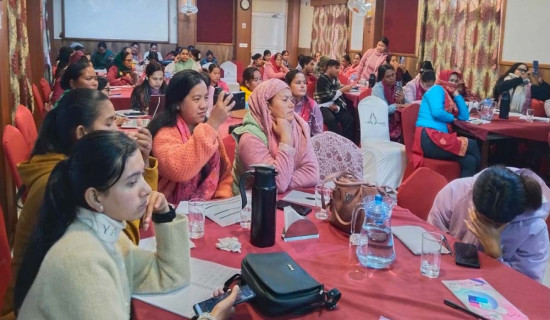- Thursday, 25 December 2025
Lessons From Failure
Jörg Döbereiner
The recent outbreak of mpox in Africa does not only threaten people who live in the affected areas. It is also a test case for assessing whether the international community has learned the lessons of the Covid-19 pandemic. Though some progress is evident, humankind still has a far way to go to “ensure healthy lives and wellbeing for all”. In mid-August, the World Health Organization (WHO) declared the rapid increase of mpox cases in Africa to be a public health emergency of international concern. It was the second such warning in recent years for this potentially fatal viral disease after the first one in 2022.
The latest outbreak is mainly caused by a new virus strain called clade Ib. The Democratic Republic of the Congo (DRC) and Burundi are the worst affected countries. Other sub-Saharan countries have reported cases too. Beyond the continent, clade Ib infections have so far remained very rare. Experts do not consider mpox to be the new Covid-19. The virus has been known for decades as “monkeypox”. It is related to smallpox. Symptoms include fever, aching muscles and a painful rash.
The degree of success in containing the mpox outbreak and treating the patients will show to what extent the international community has learned the lessons of Covid-19. That virus spread fast and in an uncontrolled manner. Long existing disparities became even more obvious. In high income countries, for example, vaccines became universally available much sooner than in those with low incomes. Valuable time was lost in reducing pandemic impacts.
We do see some progress today. Multilateral organisations are cooperating on a shared mpox strategy, and one of the parties involved is the AU’s Africa CDC (Centres for Disease Control and Prevention). The global vaccine alliance Gavi says it can spend up to $ 500 million on mpox vaccines for African countries affected by the latest outbreak. The Pandemic Fund, moreover, has fast made almost $ 130 million available to 10 African countries. This fund was set up during the Covid-19 pandemic with the mission of supporting countries with low and middle incomes.
Nonetheless, fundamental challenges persist. Vaccine doses are not being distributed fast in Africa. Only 5 million of 10 million needed doses have been promised so far, according to the online platform Think Global Health. The AU wants 60 per cent of needed vaccines to be produced in Africa by 2040, but it still has a very long way to go. So far, Africa only produces about one per cent. Moreover, the continent needs its own agency for the approval of medicines.
The greatest problem, however, is the lack of appropriate health infrastructure, which is needed for treating patients and monitoring diseases. Mpox is only an example in case. Just consider the “Big Three” infectious diseases: tuberculosis, HIV/AIDS and malaria. They wreak havoc particularly where poverty is common and tend to kill people who have no access to healthcare or only get it too late. These communities are denied both prevention and cure. To be effective, any public-health policy must include poverty reduction. In 2022, tuberculosis claimed 1.3 million lives and was the most deadly infectious disease after Covid-19. Drug resistance is an increasingly urgent global challenge.
The 3rd Sustainable Development Goal (SDG3) is to ensure healthy lives and wellbeing for all. To achieve it, more international cooperation is necessary. One must not forget, after all, that some severe diseases are hardly known in high-income countries, but cause serious problems in disadvantaged world regions. Medical research has neglected them for a long time – and that too must change.
- Development and Cooperation

















